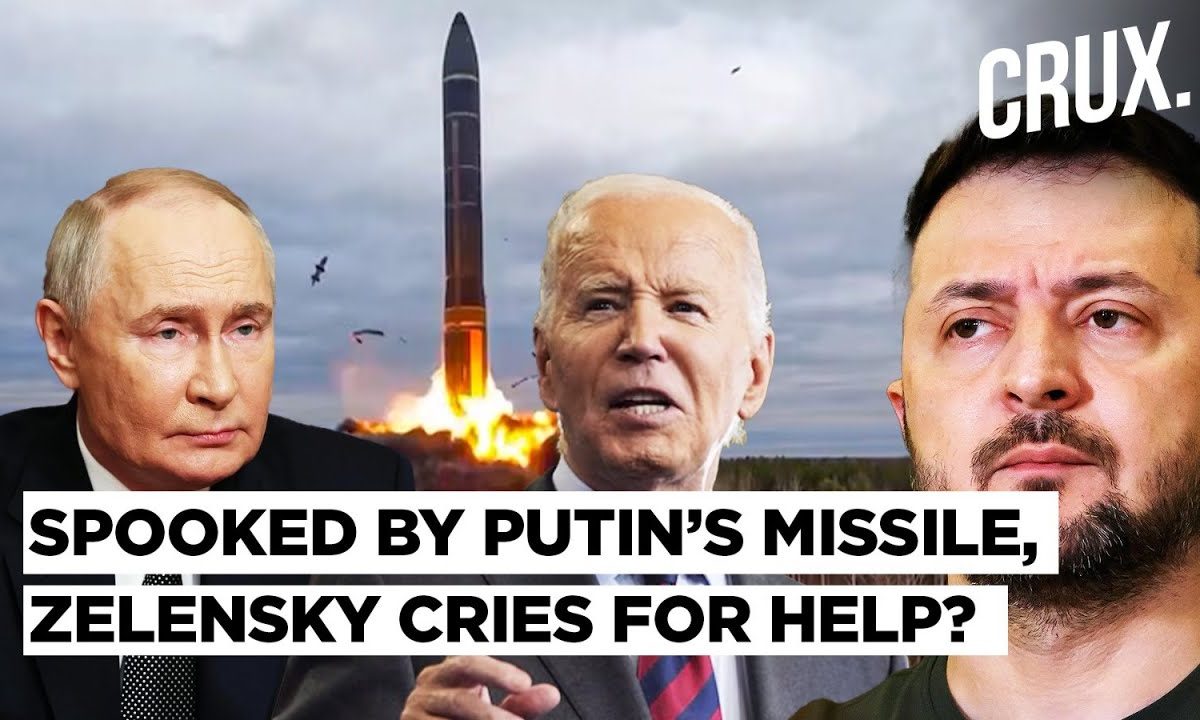The massive Israeli offensive against Hezbollah in Lebanon and Iran's retaliatory strikes - over 180 missiles descending on Tel Aviv - is widely being seen as an inflection point in the Middle East that has been on the boil since Israel invaded Gaza nearly a year ago. Tensions in the Middle East spilled over into Lebanon, following the killing of the secretive Hezbollah chief Hassan Nasrullah, and has the potential of engulfing the broader region, including Yemen, Iraq and Syria, in an all-out war.
Over the course of the year since the Gaza war started, Iran and its proxies, called the 'Axis of Resistance', and Israel and the United States have engaged in a cycle of tit-for-tat attacks across the region. The 'Axis of Resistance' - Hamas, Hezbollah, the Syrian government, the Houthis of Yemen and armed groups in Syria and Iraq - have been a cornerstone of Iran's regional policy in keeping Israel in check.
Iran directly attacking Israel after years of a shadow war is likely to set off a chain reaction along the complex web of alliances and rivalries across the Middle East. While some high-profile leaders like Hamas politburo chief Ismail Haniyeh and top Hezbollah commander Fuad Shukr have already been killed, there are other key players and actors who have stepped in as a regional war looms large.

Middle East Crisis: Here Are The Key Characters
ISRAEL
Prime Minister Benjamin Netanyahu
In the weeks following the October 7, 2023, attack on Israel by Hamas, it was widely believed that Prime Minister Benjamin Netanyahu's political days were numbered. However, a year later, the wily Netanyahu has staged a remarkable turnaround and his popularity ratings have shot up following a brutal campaign of airstrikes in Lebanon and Gaza and assassinations of its rivals across the Middle East.
The Israeli Prime Minister has clearly stated the war objectives -- to continue battling the Lebanese Hezbollah and defeat Hamas in the Gaza Strip until "total victory". At the same time, he has also warned Iran and its proxies. "There is no place in Iran that the long arm of Israel cannot reach, and that's true of the entire Middle East," he recently said in the United Nations General Assembly.
Defence Minister Yoav Gallant
Yoav Gallant remains the second-most powerful military figure in Israel despite reports of his uneasy ties with Netanyahu. Gallant directed the successful invasions of Gaza City, Khan Yunis, and Rafah. He has also been the go-to Israeli official for the United States to iron out disputes when direct contact with Netanyahu at critical points during the war was not possible.
Mossad chief David Barnea
On September 17, multiple pagers and walkie-talkies of Iran-backed militia Hezbollah exploded in Lebanon, killing 40 and injuring over 3,000. The attack not only derailed Hezbollah's communications system, but also laid ground for Israel to attack the outfit. The brain behind it was Israeli spy agency Mossad chief David Barnea. He also led talks with negotiators for a hostage release deal to end the Gaza war.

PALESTINE
Hamas chief Yahya Sinwar
Hamas chief Yahya Sinwar is considered to be the mastermind of the October 7 attack on Israel that killed around 1,200 people and abducted more than 250 Israelis. The 61-year-old Palestinian, who has a $400,000 bounty, has remained in hiding since the war started.
Former Hamas military chief Mohammed Deif
If Yahya Sinwar was the brain behind the October 7 attack, Mohammed Deif led the military charge in Israel. Nicknamed 'The Guest', Deif has been on Israel's most-wanted list since 1995. He was killed in an airstrike on July 13, 2024.
LEBANON
Former Hezbollah chief Hassan Nasrallah
A vegetable vendor's son, Hassan Nasrallah, transformed Hezbollah into one of the strongest Iran-backed militia founded to fight Israeli troops. Under him, Hezbollah mounted its strongest ever attack on Israel from October 2023 in solidarity with Gaza. The elusive Nasrallah was killed on September 27 after Israel bombarded Hezbollah headquarters. Nasrallah's cousin Hashem Safieddine is tipped to head the Iran-backed outfit.
Hezbollah second-in-command Naim Qassem
With the top leadership of Hezbollah almost wiped out, deputy chief Naim Qassem has become the face of the outfit and led the counterstrikes against Israel. A veteran, who has served as Hezbollah deputy secretary general since 1991, has vowed to continue its artillery and rocket fire on Israel.
Former Hezbollah military commander Fuad Shukr
So secretive was his life that Fuad Shukr was called the 'Ghost'. However, the former Hezbollah military commander was a key figure who expanded the terror group's rocket arsenal. He is believed to be the mastermind behind the rocket attack on the northern Israeli town of Majdal Shams, which killed 12 children. Shukr was killed in an Israeli airstrike in Beirut in August.

IRAN
Iran Supreme Leader Ayatollah Ali Khamenei
After years of avoiding a direct attack on Israel, Iran fired missiles at Tel Aviv on October 1, days after Ayatollah Ali Khamenei vowed to avenge the killing of Nasrallah. In fact, Khamenei was already seething after a string of attacks on Iranian envoys and the assassination of Hamas's political wing chief Ismail Haniyeh on Iranian soil.
Islamic Revolutionary Guard Corps chief Hossein Salami
Days after promising retaliation for Israel's "evil deeds", Hossein Salami, the commander-in-chief of the powerful Islamic Revolutionary Guard Corps (IRGC), targeted vital military and security targets in Israel on October 1. Salami, known for his hardline rhetoric against the United States and Israel, took over as IRGC chief in 2019.
SUPPORTING ACTORS: YEMEN, IRAQ AND SYRIA
Houthi chief Abdul Malik al-Houthi
Abdul Malik al-Houthi, the enigmatic leader of Yemen's Houthi movement, has transformed the outfit from a ragtag militia to a defiant force that has acquired tens of thousands of fighters and a huge arsenal of armed drones. Backed by Iran, Houthis have launched missiles at Israel while carrying out drone attacks in the Red Sea, affecting maritime traffic in one of the world's busiest waterways.
Kataib Hezbollah
An elite Iraqi armed faction closest to Iran, the Kataib Hezbollah, has silently launched around 170 attacks on US bases in Iraq and Syria this year. The most prominent attack was on the Jordanian-US outpost in January, killing three US soldiers. The US designated it as a terrorist organisation in 2009.
Harakat Hezbollah Al-Najuba
The Iran-backed militia group was established in 2013 in the wake of the Syrian civil war and is headed by Akram Al-Kaabi, a designated global terrorist. Along with the Kataib Hezbollah, the outfit also launched attacks on US bases earlier this year amid the crisis in the Middle East.
Published By:
Abhishek De
Published On:
Oct 2, 2024
Tune In

 1 month ago
1 month ago

















